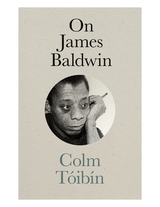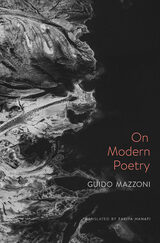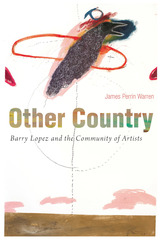3 start with O start with O

Acclaimed Irish novelist Colm Tóibín first read James Baldwin just after turning eighteen. He had completed his first year at an Irish university and was struggling to free himself from a religious upbringing. He had even considered entering a seminary and was searching for literature that would offer illumination and insight. Inspired by the novel Go Tell It on the Mountain, Tóibín found a writer who would be a lifelong companion and exemplar.
From On James Baldwin
Baldwin was interested in the hidden and dramatic areas in his own being, and was prepared as a writer to explore difficult truths about his own private life. In his fiction, he had to battle for the right of his protagonists to choose or influence their destinies. He knew about guilt and rage and bitter privacies in a way that few of his White novelist contemporaries did. And this was not simply because he was Black and homosexual; the difference arose from the very nature of his talent, from the texture of his sensibility. “All art,” he wrote, “is a kind of confession, more or less oblique. All artists, if they are to survive, are forced, at last, to tell the whole story, to vomit the anguish up.”
On James Baldwin is a magnificent contemporary author’s tribute to one of his most consequential literary progenitors.

An incisive, unified account of modern poetry in the Western tradition, arguing that the emergence of the lyric as a dominant verse style is emblematic of the age of the individual.
Between the end of the eighteenth century and the beginning of the twentieth, poetry in the West was transformed. The now-common idea that poetry mostly corresponds with the lyric in the modern sense—a genre in which a first-person speaker talks self-referentially—was foreign to ancient, medieval, and Renaissance poetics. Yet in a relatively short time, age-old habits gave way. Poets acquired unprecedented freedom to write obscurely about private experiences, break rules of meter and syntax, use new vocabulary, and entangle first-person speakers with their own real-life identities. Poetry thus became the most subjective genre of modern literature.
On Modern Poetry reconstructs this metamorphosis, combining theoretical reflections with literary history and close readings of poets from Giacomo Leopardi to Louise Glück. Guido Mazzoni shows that the evolution of modern poetry involved significant changes in the way poetry was perceived, encouraged the construction of first-person poetic personas, and dramatically altered verse style. He interprets these developments as symptoms of profound historical and cultural shifts in the modern period: the crisis of tradition, the rise of individualism, the privileging of self-expression and its paradoxes. Mazzoni also reflects on the place of poetry in mass culture today, when its role has been largely assumed by popular music.
The result is a rich history of literary modernity and a bold new account of poetry’s transformations across centuries and national traditions.

Other Country presents a full-scale treatment of Lopez’s work. James Perrin Warren examines the relationship between Lopez’s writing and the work of several contemporary artists, composers, and musicians, whose works range from landscape photography, painting, and graphic arts to earth art, ceramics, and avant-garde music. The author demonstrates Lopez’s role in creating this community of artists who have led cultural change, and shows that Lopez’s writing—and his engagement with the natural world—creates an “other country” by redefining boundaries, rediscovering a place, and renewing our perceptions of landscapes.
Warren’s critique examines manuscripts and typescripts from the 1960s to the present, interviews with Lopez conducted from 2008 to 2013, and interviews with artists. Part 1 focuses on the relationship between Lopez’s storytelling, which he calls “a conversation with the land,” and Robert Adams’s landscape photography. For both Lopez and Adams, a worthy artistic expression serves the cultural memory of a community, reminding us how to behave properly toward other people and the land. Part 2 looks at the collaborative friendship of Lopez and visual artist Alan Magee, tracking the development of Lopez’s short stories through a consideration of Magee’s career. Part 3 moves farther afield, discussing Lopez’s relationship to Richard Long’s earth art, Richard Rowland’s ceramics, and John Luther Adams’s soundscapes.
Other Country reveals the dynamic relationships between Lopez, considered by many the most important environmental writer working in America, and the artistic community, who seek to explore the spiritual and ethical dimensions of an honorable and attentive relationship to the land and thus offer profound implications for the future of the planet.
READERS
Browse our collection.
PUBLISHERS
See BiblioVault's publisher services.
STUDENT SERVICES
Files for college accessibility offices.
UChicago Accessibility Resources
home | accessibility | search | about | contact us
BiblioVault ® 2001 - 2025
The University of Chicago Press









